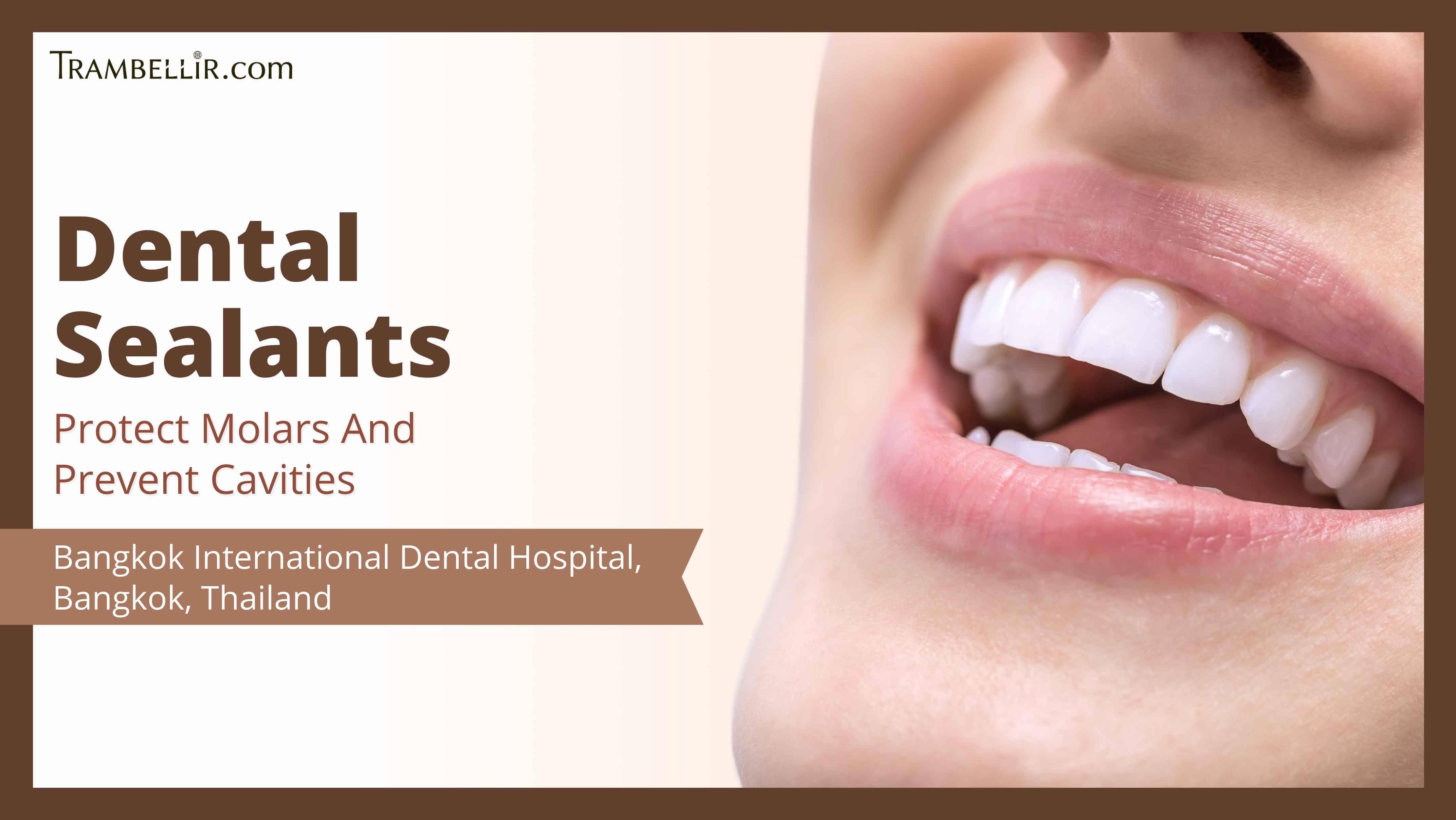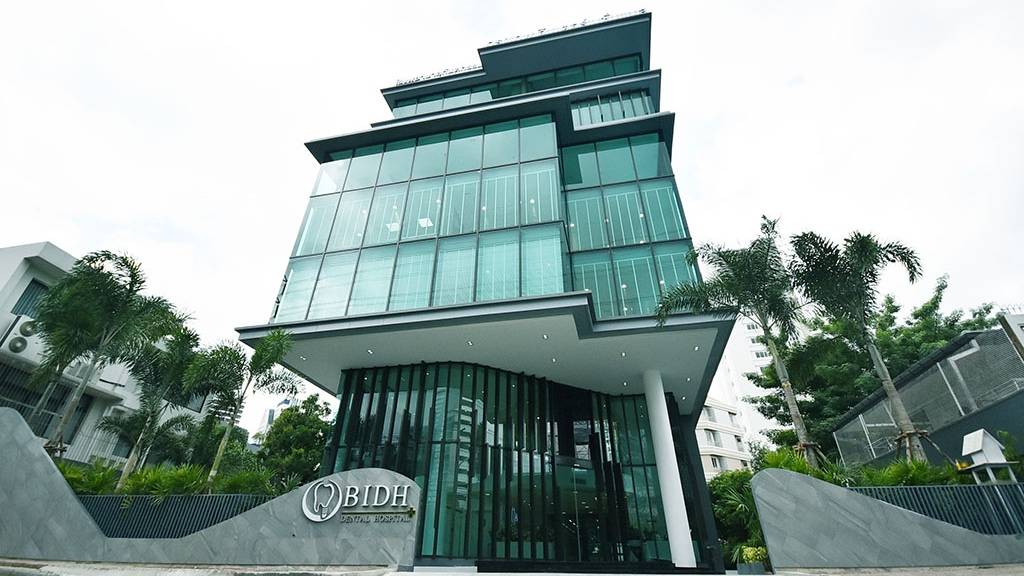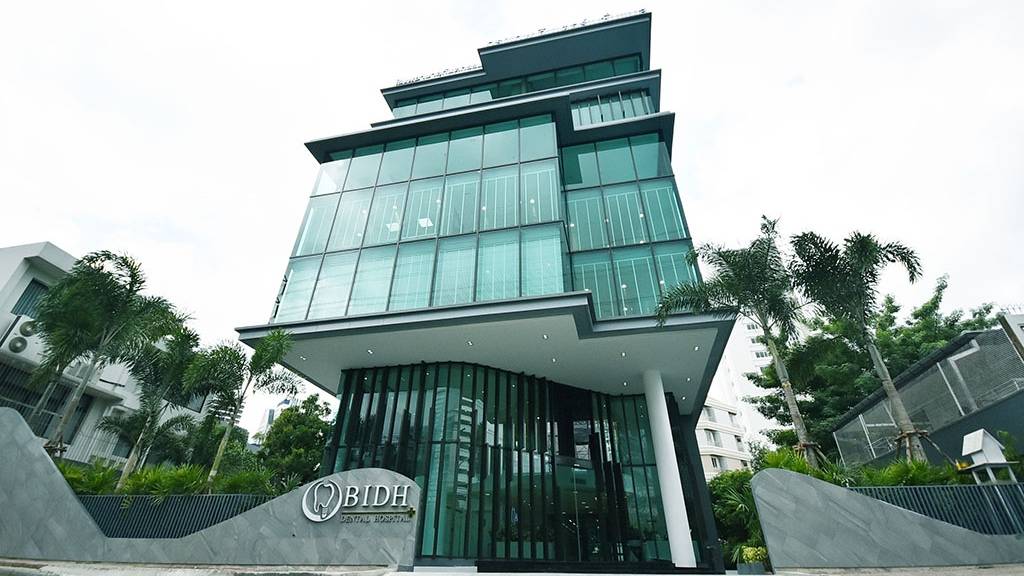It Is Suitable For
· Those in Bangkok looking for ways to prevent tooth decay at an early stage.
· Those with deep pits and grooves on their back teeth.
· Those with thin and weak enamel.
· Those who want to reduce risk of cavities.
· Those who wish to maintain good oral health.
What Is Dental Sealants?
Dental Sealants are protective plastic coatings carefully applied by a dentist onto the chewing surfaces of back teeth such as molars and premolars. These back teeth often contain deep grooves and narrow pits that trap food particles and bacteria, which can later lead to tooth decay. By covering these uneven surfaces, it will create a smooth barrier that prevents bacteria from entering and reduces the likelihood of cavities. This smooth layer also makes the tooth surface easier to clean with regular brushing.
Dental Sealants play an important role in preventive dentistry. They act as a shield that blocks harmful substances from reaching vulnerable areas of the teeth. Application of dental sealants is especially valuable soon after permanent molars erupt during childhood, but adults with healthy molars can also benefit if sealants were not placed earlier. With a quick visit to the dentist at our affiliated hospital, the chewing surfaces of teeth can gain long-lasting protection that helps maintain oral health and minimizes the need for future restorative treatments such as fillings or crowns.
How It Works
Dental Sealants begin by a consultation with the dentist at our affiliated hospital, where the condition of the molars is carefully checked. If the teeth are healthy and free from major decay, the dentist proceeds with the sealant procedure. The entire process usually takes about 20 to 40 minutes depending on how many molars require treatment, and it is normally completed in a single visit.
During the treatment, the dentist first cleans the chewing surfaces of the molars, paying close attention to the natural pits and fissures. A mild solution is then applied to the enamel to help the sealant bond firmly. The teeth are rinsed and dried thoroughly before the liquid sealant is carefully painted into the grooves. Finally, a curing light is directed onto the surface to harden the material and create a strong protective layer.
The benefits of Dental Sealants include effective prevention of cavities, protection of molars during the most cavity-prone years, and avoidance of invasive treatments such as fillings or crowns later on. Since the treatment does not involve drilling or anesthesia, there is no discomfort during or after the visit. There is also no downtime, meaning normal eating, drinking, and daily activities can be continued immediately after treatment.
Dental Sealants Procedure
1. Consultation will be conducted with the dentist.
2. Teeth will be cleaned.
3. Etchant solution will be applied and rinsed.
4. Liquid sealant will be painted into the pits and fissures.
5. Light curing will be applied.
Advantages and Limitations of Dental Sealants
<Advantages>
· Protects teeth
· Supports oral health
· Preserves natural tooth structure
· Maintains stronger molars
· Promotes healthy smiles
<Limitations>
· Temporary tooth sensitivity may occur for a few hours after treatment
Dental Sealants Preparation
· Inform dentist any ongoing medication and tooth sensitivities
· Maintain daily excellent oral hygiene
· Ensure any cavities are treated at least 1 to 2 weeks before treatment
Dental Sealants Post Care
· Avoid chewing hard and sticky food for at least 2 to 3 days after treatment
· Maintain brushing and flossing twice daily every day after treatment
FAQ
Q1: How long do Dental Sealants last?
A1: Dental Sealants can last for 9 years or more with proper care and regular dental check-ups with the dentist at our affiliated hospital every 6 months.
Q2: Are Dental Sealants safe?
A2: Yes, Dental Sealants are safe. Dental Sealants are made from medical-grade materials and have been used for decades in preventive dentistry.
Q3: Do Dental Sealants hurt when applied?
A3: No, Dental Sealants do not cause pain. The application of Dental Sealants is quick and painless, requiring no drilling or injections.
Q4: Do Dental Sealants replace brushing and flossing?
A4: No, Dental Sealants do not replace brushing and flossing. Dental Sealants provide extra protection against cavities but must be combined with daily oral hygiene practices such as brushing with fluoride toothpaste, flossing, and regular dental visits every 6 months.
Q5: Are Dental Sealants visible on teeth?
A5: Dental Sealants are usually clear, white, or slightly tinted, making them nearly invisible when talking or smiling. Dental Sealants are designed to blend in with the natural tooth surface while providing protection.
Clinic Information
[Clinic Name] Bangkok International Dental Hospital
[Location] Bangkok, Thailand
[Nearest Station/ Nearest Tourist Destination] Approximately 5 to 10 minutes walking distance from Ploenchit Station (BTS Exit 4) and from Nana Station (BTS Exit 2)
[Clinic Opening Time] Monday to Saturday (9:00AM - 8:00PM); Sunday (9:00AM - 6:00PM)
| Operation Time |
20 - 40 mins
|
| Recovery Time |
None
|
| Number of Postoperative Visit |
Depending on treatment plan
|
| Hospitalization |
Not required
|
| Limitations |
Temporary tooth sensitivity may occur for a few hours after treatment
|
| Cancellation Policy |
No charge for cancellations made at least 48 hrs prior appointment date* |
| Location |
98 Sukhumvit Soi 2, Khlong Toei, Ploenchit area, Bangkok 10110 |
Terms of Service
Trambellir is a health tourism platform and does not in any way provide, promote, or sell any
medication or medical treatment to the Customers.
Customers are advised to contact the healthcare providers directly for any enquiries related to
medical treatments.






